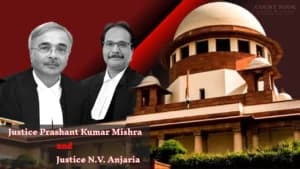The Supreme Court of India has held that addressing someone as "Miyan-Tiyan" and "Pakistani" may be offensive but does not constitute an offence under Section 298 of the Indian Penal Code (IPC), which pertains to deliberately wounding religious feelings. The ruling came while discharging a person accused under various IPC provisions, including Section 298, in a case from Jharkhand.
"The appellant is accused of hurting the religious feelings of the informant by calling him ‘Miyan-Tiyan’ and ‘Pakistani.’ Undoubtedly, the statements made are in poor taste. However, it does not amount to hurting the religious sentiments of the informant." — Supreme Court Bench
Case Background
The case arose from an FIR filed against the appellant, Hari Nandan Singh, by an Urdu translator and acting clerk (Right to Information) at the Sub-Divisional Office, Chas. According to the complaint, the appellant allegedly used derogatory terms against the informant when the latter visited his residence to deliver information under an RTI application. The informant claimed that the appellant insulted him based on his religion and obstructed his official duties.
Read Also:- Supreme Court Warns Lawyer for Threatening Suicide During Hearing, Demands Written Apology
Following the complaint, charges were framed against the appellant under Sections 298, 353 (assault or criminal force to deter a public servant), and 504 (intentional insult with intent to provoke breach of peace) of the IPC.
Upon reviewing the case, a bench comprising Justices B.V. Nagarathna and Satish Chandra Sharma found that the essential ingredients of the alleged offences were not met. The Court noted:
- There was no evidence to establish that the appellant used criminal force or assaulted the informant, thus Section 353 IPC was not applicable.
- The remarks made, though inappropriate, did not indicate a deliberate intention to wound religious sentiments under Section 298 IPC.
- The charge under Section 504 IPC was not sustainable, as there was no act on the appellant's part that could provoke a breach of peace.
Legal Precedent and Discharge Order
In delivering its verdict, the Supreme Court cited the principles laid out in Sajjan Kumar v. CBI (2010) 9 SCC 368, which emphasize that a charge can only be framed when there is sufficient material to support an offence. The Court ruled that the High Court had erred in refusing to discharge the appellant and set aside its decision.
"A bare perusal of the FIR reveals that the essential ingredients of the offences alleged under Sections 353, 298, and 504 IPC are not made out. Evidently, there was no assault or use of force by the appellant to attract Section 353 IPC. Further, the remarks do not amount to hurting religious sentiments under Section 298 IPC." — Supreme Court
Considering the lack of substantive evidence, the Supreme Court discharged the appellant from all charges. The ruling underscores the importance of distinguishing between offensive speech and legally punishable acts.
"While the language used by the appellant may be regrettable, it does not fulfill the criteria for a criminal offence under IPC. The appeal is allowed, and the appellant is discharged of all charges." — Supreme Court
This judgment sets an important precedent in cases related to alleged religious insult. It reinforces the principle that while certain words may be offensive, they do not necessarily constitute a criminal act unless they meet the specific legal criteria established under the IPC.
Senior Advocate A. Sirajudeen, along with advocates Arya Kumari, Divya Singhvi, Pardeep Gupta, Parinav Gupta, Mansi Gupta, and Vipin Gupta, represented the accused. The State was represented by Standing Counsel Vishnu Sharma and advocates Shiv Ram Sharma, Tulika Mukherjee, Venkat Narayan, and Beenu Sharma.
Case : Hari Nandan Singhv v State of Jharkhand












